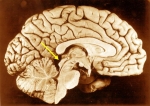|
Telsa Cola posted:My community college professor 100% hosed with mine and several other peoples grades to our advantage to insure we would be able to transfer to our planned 4 year universities. Go to office hours boys and girls
|
|
|
|

|
| # ? Apr 24, 2024 21:24 |
|
Vato posted:Math is difficult to grasp at high levels, and I think in school they teach a lot of stuff that is cool and might will help to few kids who want to keep doing math stuff interested, but for everyone else it's a SLOG. Why not throw is some tax things? Bank accounts? I know calculus is invaluable for certain professions, but in life...we need to know how to do basic things. Then you can add the fun stuff. The problem is that this should have been taken care of by eighth grade at the latest, and that usually the next year of math can't be done without the previous one (up until you finish calculus, where things branch out again) Also the reason calc is a highschool capstone is as much because it's a good review of algebra, geometry and trig as it is that it becomes a fundamental tool for bashing around once you have it (the same way algebra starts out a study of it's own but soon but soon becomes just a tool you deploy when needed while you're interested in other things) Calc is also the first math field most people encounter where they start seeing holes in the material, numerical things that can't be described using numbers and +-*/^ln, things that don't look like trig but you do one thing to them and trig suddenly appears, adding up an infinite number of numbers and getting 2 as your answer, etc. It's difficult but it's also rewarding of itself and incredibly useful. People at your math level don't see it used anywhere you don't understand its uses yet, so it's hard to see how important it is. Machine learning relies on it. About half of your questions about probability or statistics can't be approached without it. Question about the movement of money, shifts in population, or the abundance of resources are often only answerable when formed in a way that calculus can be applied to them. It's as much a lynchpin of the modern world as antibiotics or nitrogen fertilizer.
|
|
|
|
raton posted:The problem is that this should have been taken care of by eighth grade at the latest, and that usually the next year of math can't be done without the previous one (up until you finish calculus, where things branch out again) I'm not saying to stop teaching advanced math. I'm just saying you can get out of high school with, whatever, AP courses, and still not understand how to balance your checkbook. And I know no one uses checkbooks now, but you get what I mean, I think. The other thing is how to convert things. Weights and measures and so on. I don't know. I'm not saying to do away with anything at all, I just think it'd be good to teach practical things as well. NOT that calculus is impractical...maybe I'm just regretting I didn't take shop. Do they teach these things in shop? I hope so.
|
|
|
|
COMRADES posted:I do feel like we should teach set theory and basic logic earlier though, kids aren't that stupid and it'd provide a better foundation than what they get now (or at least what I got). Hell you could do most of set theory with Venn Diagrams.
|
|
|
|
Vato posted:I'm not saying to stop teaching advanced math. I'm just saying you can get out of high school with, whatever, AP courses, and still not understand how to balance your checkbook. And I know no one uses checkbooks now, but you get what I mean, I think. They should have taught conversions in sixth grade or so but it sticks for most people when they have to apply it in chemistry or physics at the start of their highschool run. I took a kind of shop class and they didn't do conversions in it, I don't think many of the students there could have handled it. There was some work with fractions, like if you need to cut three 2' 11 3/4" lengths of 2x4 and your saw rips 1/4" with each cut how long of a piece of 2x4 do you need? I had already taken physics when I was in that class and was enrolled in AP Calc so these were trivial questions for me but for maybe half the class they were an impossible task. They were all taught the bath they needed to do that in middle school, but that doesn't mean they learned it.
|
|
|
|
Genesplicer posted:One of my students sagely pointed out "The reason people say Rocket Science is hard is because it is really Rocket Math." whoa
|
|
|
|
Physics is all the worst problems taken out of a calculus textbook and put in they own book
|
|
|
|
It's just so BORING. I get that it's practice, but maybe they should incorporate more music classes or something. Music definitely uses math. Everything does. I know! It's just sooooo...like, how can you get excited about math? Without a calculator?
|
|
|
|
Vato posted:It's just so BORING. I get that it's practice, but maybe they should incorporate more music classes or something. Music definitely uses math. Everything does. I know! I don't think it's possible to get excited about what passes for math before college. The kids who are enthusiastic about the subject are enthusiastic because of what they've learned outside of school. Khazar-khum posted:This is why all the feel-good crap about science they dump on kids is useless. You're not doing them any favors by not getting them used to the idea that Science=Math early on. Instead you end up with a bunch of frustrated kids who don't understand why their beloved science just turned into math. I think this is a great idea in general, but the problem is that there isn't always a lot you can say about any given area of science using math that students will be familiar with. You could probably come up with some sort of simple models, but anywhere outside of physics class there are going to be a lot of questions about extensions to some model where the honest answer is to come back after you've taken multivariable calculus and differential equations and maybe a year of math after that.
|
|
|
|
Hi I'm starting my math PhD next year who wants to touch me.
|
|
|
|
More probability/statistics problems should incorporate gambling IMO
|
|
|
|
I memorised the square root of my phone number for shits and giggles
|
|
|
|
Kids go ape for number theory. Show them something about how multiples of nine have a digit sum that's a multiple of nine and their jaw will drop every time.
|
|
|
|
gently caress the contiuum imo
|
|
|
|
a few DRUNK BONERS posted:gently caress the contiuum imo I'm trying to but there's a lot of ground to cover
|
|
|
|
A Bakers Cousin posted:Hi I'm starting my math PhD next year who wants to touch me. don't you have to learn every math to do that? and like invent a new one or something
|
|
|
|
ultrafilter posted:I don't think it's possible to get excited about what passes for math before college. The kids who are enthusiastic about the subject are enthusiastic because of what they've learned outside of school. They are smart.
|
|
|
|
A Bakers Cousin posted:Hi I'm starting my math PhD next year who wants to touch me. Nobody and that won't change.
|
|
|
|
Cubone posted:don't you have to learn every math to do that? and like invent a new one or something There's a lot of math that no one wants to do because it sucks a fuckin egg so you can always do one of those That was basically the spot prob/stat was in for a long time, where they got to a certain point and found out to go further they were going to have to take two really disgusting integrals and intermix them and then actually do all that poo poo to get the proof they wanted
|
|
|
|
Vato posted:It's just so BORING. I get that it's practice, but maybe they should incorporate more music classes or something. Music definitely uses math. Everything does. I know! The cool stuff requires some basic ability that has to be learned You can do some fun stuff along the way but honestly there's going to be at least some "bite the bullet and get through this" no matter how lovey dovey the teacher is Math is about patterns and the basic patterns are not interesting and rarely revealing. But the cool patterns usually aren't approachable without the basic ones as they generally spring from them (or from interactions or comparisons between them). The most important thing anyone learns in school is how to put their head down and bull through an intellectual challenge, just like we have an instict for with physical issues. Some students have academically minded parents who have set them up for this and they show up with little plans and tactics they employ to keep at it. Lots of students don't come to school with this kind of preparation and it's critical they be constantly exposed to challenges that require it and fed hints on how to get it done, not just urged or cajoled to do it blindly. Math happens to be king gently caress of this sort of poo poo mountain. That's part of the reason that the single most important class on your transcript for entrance to medical school is usually Calc 2 (but also sometimes biochem). raton fucked around with this message at 02:44 on Dec 1, 2018 |
|
|
|
raton posted:usually Calc 2 (but also sometimes biochem). I bet that's actually because of the time doctor's accidentally rediscovered the Riemann Integral
|
|
|
|
I’m always intrigued by peoples weird stories from their adolescence
|
|
|
|
this thread was cool when it was about weird poo poo from math class. I sentence all you dorks talking about actual math to 100 days in the super swirly pits
|
|
|
|
When I was in middle school my dad sat me down and forced me to memorize the proof of the 30-60-90 triangle and yelled at me when I hosed it up. Jokes on him now I'm in college and still suck at math!!!!
|
|
|
|
in fifth grade I was doing some math that was way beyond my level because my weird hippie teacher was doing this experiment to see how far each individual student could go in this makeshift gauntlet of increasingly difficult math problems. if you got it right, you got a new, harder problem, if you got it wrong, you just went back and tried again I was figuring things out without exactly understanding what it was that I was figuring out– just doing what intuitively seemed correct. the teacher was impressed and enthusiastic and I was proud to be at the head of the pack and was working hard to stay there I was working out what I now know to be called a "conjecture" for... something. I have no memory of what it was, but I know I was trying to make sure that what seemed like the right way to approach a complex problem would actually work by using the process on simpler problems (where I could check the answer because they could be derived in other ways) I had like 6 or 7 pages of messy scratch paper. my head overflowed with thoughts, and the scratch paper was part barometer, part spillover of the messy, unorganized, free-flowing logic of a precocious child given freedom and encouragement to explore bigger thoughts than they're used to. one of the test problems didn't work out. frustrated, I checked it, and confirmed that it just didn't work, which was a problem, because I'd been on a roll, and if this wouldn't work then I was clueless as to how to proceed I was mulling this over when the teacher came round to check on my progress, and I told her what I'd worked through, the process that I thought might work, but– and at this point she interrupted and said that it would. it works like that, every time, she happily confirmed. but... I shuffled through my scratch paper, looking for the problem that had been caught in my craw. it was gone. no... I... there was definitely one where it didn't work. I'd checked it over and over again, because the fact that it didn't work was what was stopping me from proceeding. I scrambled through my scratch paper again, increasingly bewildered. half-expressed notes on older problems before I'd dropped them mid-sentence because I'd had a eureka moment, random segments of long division and multiplication filling out whatever corners weren't occupied... what had been an exuberant canvas of untamed thoughts was now a frustratingly dense and inscrutable mess of unrelated information. I could find nothing related to The Problem. did I throw it out? put it in my binder? there's no sign of it anywhere... the teacher seemed a mix of amused and curious at my fluster, but she had to move on to check with other students I wracked my brain trying to remember what The Problem was, to no avail. I grabbed for new problems from the ether, but each one dutifully conformed to what the teacher had assured me was the unerring mathematical reality. eventually I had to accept that my little pile of scratch paper just didn't have whatever it was that I thought I was looking for. glumly, I used the process that the teacher had confirmed would work, to work out the solution to the problem I was actually supposed to be working on. it was right. I didn't care anymore. I felt as if I'd been hoodwinked by reality. I even lightly resented the teacher, feeling she, with her firm adult certainty, had somehow been a party to it surely, I think, looking back at it, I must have simply missed a small, easily overlooked error. at 30, repeatedly making the same sillly mistake on problems and not being able to spot it has probably eaten up hours, even days of my life at this point. surely, if I had just found the scratch paper with the erroneously worked-out test problem, I would have seen my mistake. or, maybe it was something like an invisible divide-by-zero error, and if I'd shown it to the teacher she could have explained it to me but that isn't what it feels like. since the scratch paper was misplaced, and the math was all so above my head already, I was haunted by The Problem. I never was entirely convinced that what I thought I saw wasn't exactly how it happened. that something was wrong, as if there was a hole in math, where the logic didn't quite add up, and the moment I looked away it sealed itself shut, and the seam disappeared, never to be seen again Cubone fucked around with this message at 08:59 on Dec 5, 2018 |
|
|
|
I think the hardest thing when training your brain to do sequential stepwise problems is flexing your short term memory. If you can remember a few transformations at a time, sleep on it, commit it to memory, remember the sequence the next day, add another step, sleep, repeat, eventually you can do complex and long sequences with different variables in a few seconds. So initially problems take days or weeks to solve with this process, but by committing the mechanics to memory similar problems can be solved within seconds or near instantaneous intuition.
|
|
|
|
Too much math gave you the brain fever.
|
|
|
|
I had an idea before when I was that age I don't really do that any more though.
|
|
|
|
Cubone posted:in fifth grade I was doing some math that was way beyond my level because my weird hippie teacher was doing this experiment to see how far each individual student could go in this makeshift gauntlet of increasingly difficult math problems. if you got it right, you got a new, harder problem, if you got it wrong, you just went back and tried again Urban horror in an elementary classroom
|
|
|
|
"The counter-example that was not" ~~ spooky music ~~
|
|
|
|
Writes "I have an elegant proof to the contrary but it will not fit here" in margin of RL Stein book
|
|
|
|
My math teacher in 9th grade would slam his head into the chalk board and use it to wipe away the last equation. He also most certainly had liquor in his coffee cup every morning
|
|
|
|
raton posted:Writes "I have an elegant proof to the contrary but it will not fit here" in margin of RL Stein book
|
|
|
|
EorayMel posted:More probability/statistics problems should incorporate gambling IMO Agreed, and expected value should get more of a focus than hypothesis testing. The real-world application for almost everyone is knowing how to take financial risks more intelligently, but like 40% of intro to stats is useless hand calculations of hypothesis tests.
|
|
|
|
GastonEatTheEggs posted:Agreed, and expected value should get more of a focus than hypothesis testing. The real-world application for almost everyone is knowing how to take financial risks more intelligently, but like 40% of intro to stats is useless hand calculations of hypothesis tests. If you don't do a lot of hypothesis test stuff the people in the social science building get very mad and stop sending you their students and then you can no longer offer intro stats classes for the actually capable math majors
|
|
|
|
A Bakers Cousin posted:Hi I'm starting my math PhD next year who wants to touch me. As you'll soon discover, nobody.
|
|
|
|
Math is hard...and that's why I always like people who know how to do it.
|
|
|
|
Ya'll should learn Bayes' Theorem it is fairly simple actually and will actually also help you irl.
|
|
|
|
Moridin920 posted:Ya'll should learn Bayes' Theorem it is fairly simple actually and will actually also help you irl. If moridin likes it it must actually be GAYes theorem!!!!!!!
|
|
|
|

|
| # ? Apr 24, 2024 21:24 |
|
Nooner posted:If moridin likes it it must actually be GAYes theorem!!!!!!! fair
|
|
|























